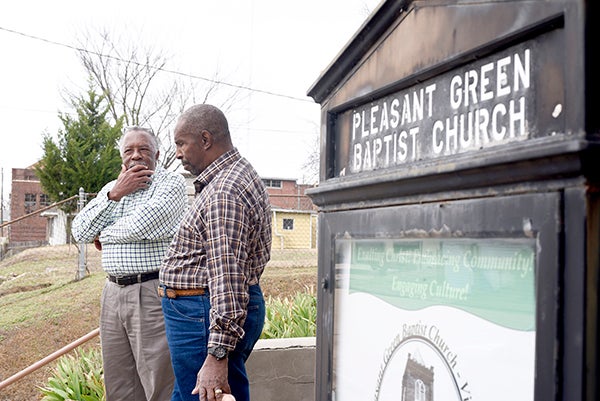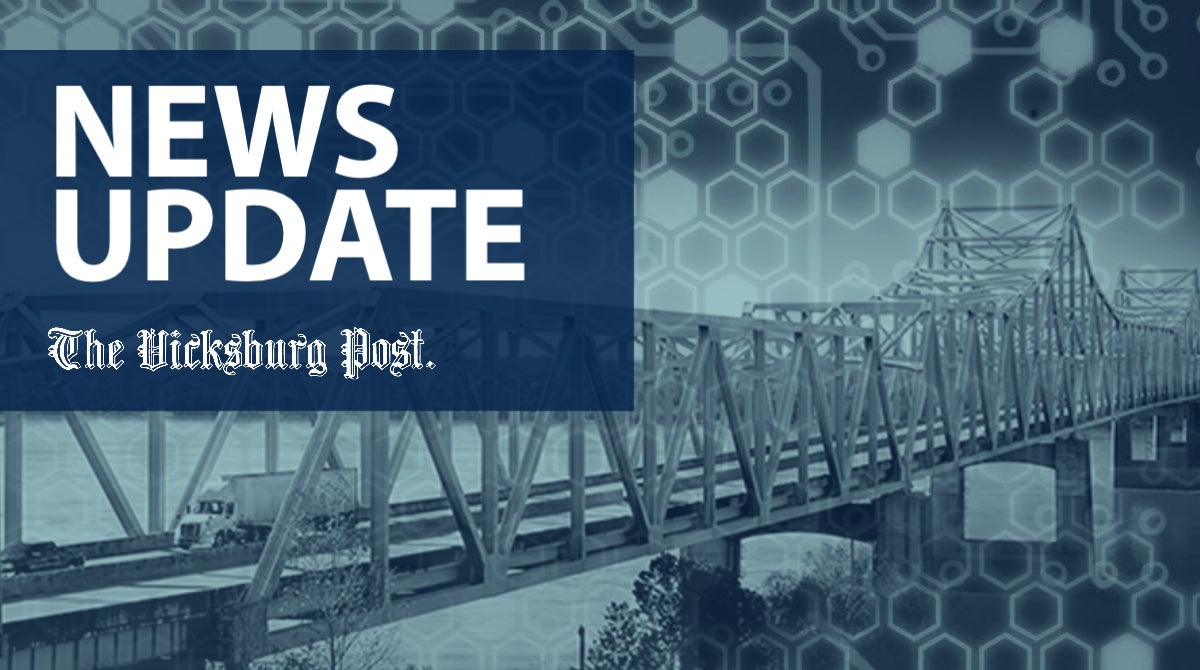Pleasant Green M.B. Church played early role in 60s civil rights movement
Published 8:49 pm Friday, February 15, 2019

- John Ferguson, left, and Henry Hunter reminisce on the steps of Pleasant Green Baptist Church of when Dr. Martin Luther King Jr. spoke at the church during the Civil Rights Movement. (File/Courtland Wells/Vicksburg Post)
In Mississippi and across the country during the summer of 1964, the civil rights movement was slowly beginning to gain momentum as blacks began working to assert their rights as American citizens.
And in the midst of those early stages, Pleasant Green M.B. Church, a red brick Baptist church on Bowman Street whose members were black, played host to the movement’s most charismatic leader, Dr. Martin Luther King Jr.
Many of the people who attended King’s speech that night at Pleasant Green are no longer in Vicksburg. Some moved away and some have since passed away, but two residents who were active in the civil rights movement in Vicksburg and still live here recall the night King spoke to the people crowded in the church’s sanctuary.
“The church was completely packed,” said Henry Hunter. “There wasn’t even standing room. I was standing in one of the windows. We had armed guards all around the place.”
“It was in the heat of the civil rights movement here in Vicksburg,” John Ferguson said. “As a member of the Student Non-Violent Coordinating Committee, we were responsible for getting him to come here, and he agreed to come and get other people involved in the civil rights movement. That was the reason that he came.”
Ferguson and Hunter said the atmosphere in Vicksburg’s black community was excited to know King was coming to speak.
“It was a milestone, both for Vicksburg and Mississippi,” Ferguson said.
“We had read about him, heard about him, seen him on the news, but that was the first time any of us had the opportunity to see him,” Hunter said.
Outside the black community, however, the atmosphere was different.
“At the time, there was little relationship between the black and white communities communicating together,” Ferguson said.
Hunter described the overall feeling in the black community as “excited but scared. During that era, the Ku Klux Klan was very active, and they were committed to doing their job, creating terrorism.”
A Dynamic Speaker
Both men said they vaguely recall what King said when he gave his message to the people, but they tried to outline its substance.
“He discussed things that needed to be done and had to be done,” Ferguson said, “And how important it was that people in the black community were aware of the hardships they were having and how they needed to get involved in the movement.
“That was the general idea of what the message was. It was early stages of the civil rights movement; to improve the conditions of blacks in terms of jobs — economics was the main emphasis.”
King, Hunter said, spoke for about an hour.
“He talked about voter registration and the importance of voting. He was just a dynamic speaker. If you listened to one of his speeches, if he asked you to walk on the Mississippi, you’d feel like you could do it.”
But the result of King’s visit to Vicksburg had a greater impact after he left, Ferguson said.
“His visit eventually ended up in communication between black and whites becoming greatly improved. Progress (on other issues) was much slower, but communication had started, and that’s how you get changes made and have progress — when you get people talking.
“That was a real effort, because many people in the white community were afraid to be seen discussing issues of civil rights with blacks at the time.”
He said groups of blacks and whites would meet in secret to discuss areas of concern.
“I remember we used to have secret meetings at St. Mary’s Church, and there were several whites who were concerned about better race relationships here, not only in Vicksburg, but nationwide.
“We secretly met without the white community having that much knowledge as to what was going on.
“It was in the early 60s, so the atmosphere was kind of bleak, but obviously, it ended up where we were talking,” Ferguson said.






